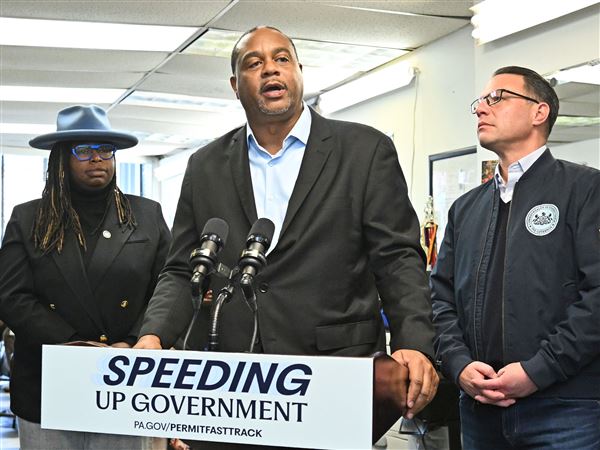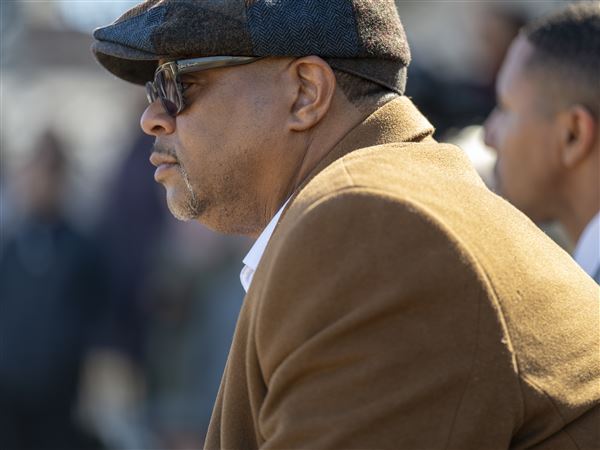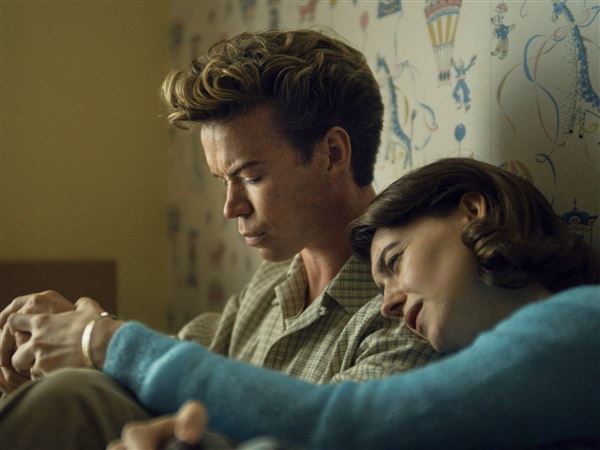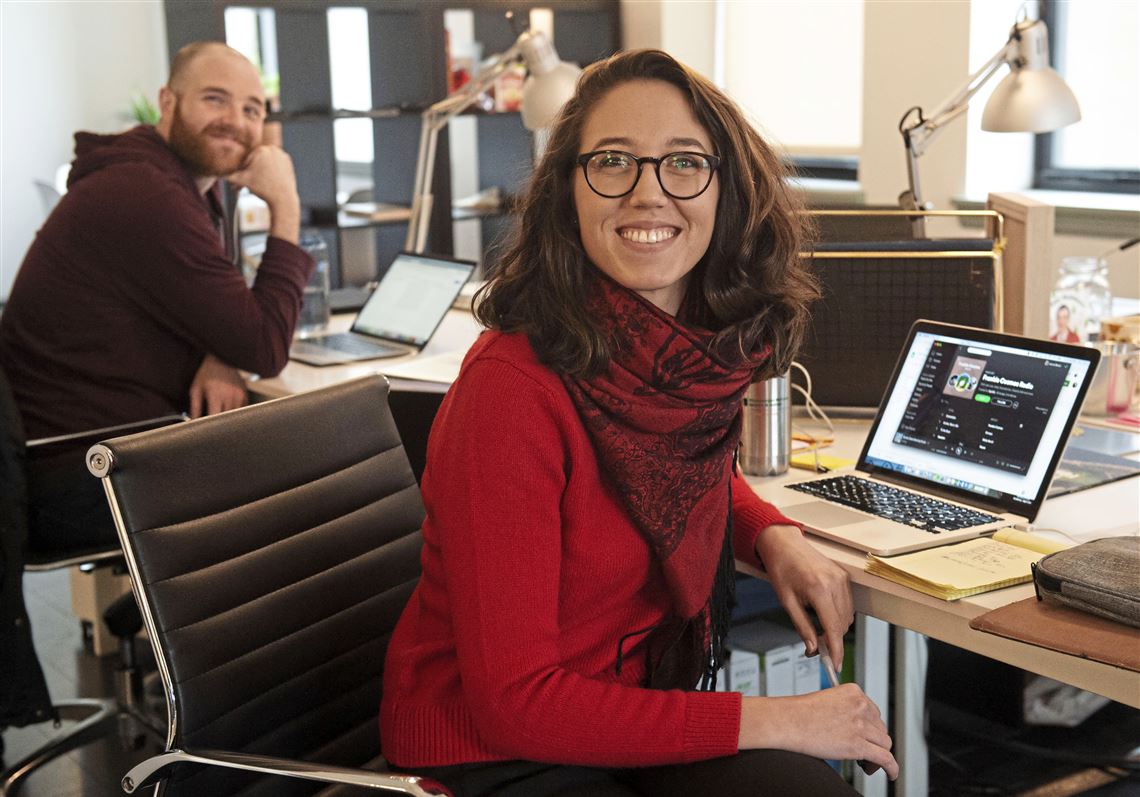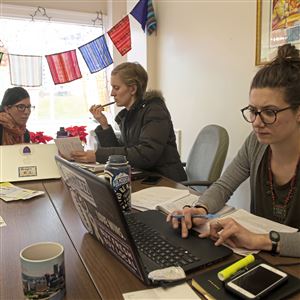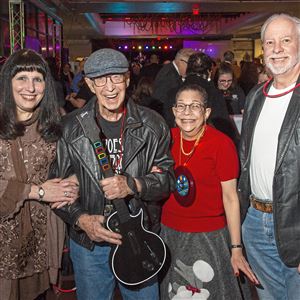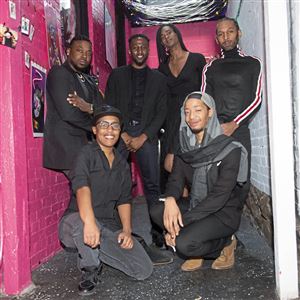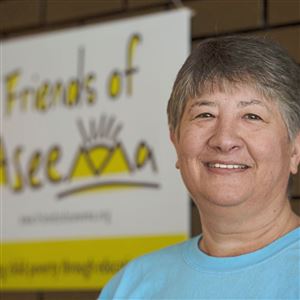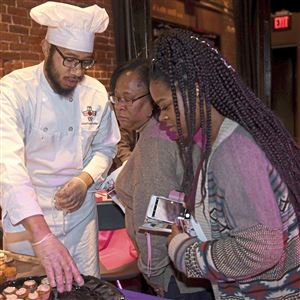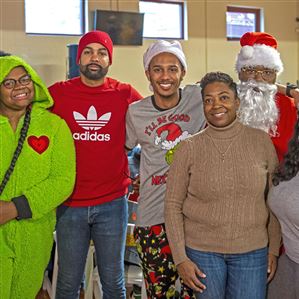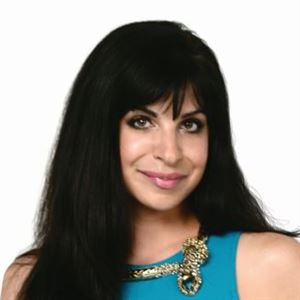#LetsMakeASEEN is an occasional piece for the SEEN column that highlights small organizations making a big impact.
Strong communities are built on a foundation of respect and trust. They are measured by the ways in which they support the most vulnerable around us. Refugees and immigrants often arrive in Pittsburgh with few structural or cultural supports. In addition to a language barrier, it’s a challenge to find your place while maintaining your heritage.
For the children of refugees, those obstacles can be magnified as they attend new schools, encounter new social situations and juggle responsibilities at home. In 2013, University of Pittsburgh student Jenna Baron saw a need to support and uplift the immigrant and refugee communities one student at a time.
“I was part of a campus organization called Keep it Real. The organization provided in-home tutoring services to refugees living in the city. That really stuck with me and defined my experience at Pitt,” said Ms. Baron.
“It was clear that the barriers went way beyond academics. For many families, due to displacement, it has been generations since they’ve had access to formal education. Their kids were the first to have formal education here.”
Ms. Baron realized the children needed homework help, volunteer opportunities, enrichment programs and other support. So she and others started a summer program on the Pitt campus where students could interact with local artists and creative organizations while working on their English skills.
She and her peers realized quickly that not only the circumstances around refugee families made it difficult for young refugees to excel in school, but also there was a whole piece that was missing: the social integration support and building community and creating pathways for kids to become engaged in broader community and access those opportunities.
“So it was clear that the barriers went way beyond academics,” she said. “For many families, due to displacement, it has been generations since they’ve had access to formal education. Their kids were first to have formal education here in the states,” she added. Because of displacement, many parents are pre-literate and left their worlds behind in hopes that their children could have a brighter future in the United States. But children need support in order to thrive.
“We were trying to provide opportunities for connection through making music, dancing, painting and poetry. These are tools that English learners could use to express their migration stories and emotional experiences,” she said.
The program has since evolved into ARYSE: Alliance for Refugee Youth Support and Education (www.arysepgh.org). Its goal is for students to find a community and not feel isolated.
“Everything familiar and comfortable isn’t there anymore,” said Ms. Baron. “We want to hold this space for our kids to feel welcome and where they can be heard. They gain confidence through this.”
And for Ms. Baron, this work grows bigger and more far reaching with each passing year as she sees the inequities in the school systems. ARYSE’s work is educational justice work, meant to create a more equitable education system for young people.
“The positive thing that I learned was that there are teachers, in particular English as a Second Language teachers, who do a really fantastic job holding these spaces for these students.” Ms. Baron said. “They are these kids’ favorite people because they make them feel it’s going to be OK.”
But ESL teachers often feel as though they are on an island. Some say that English learners’ needs aren’t often prioritized. One example: Forms are not sent home in native languages, so parents aren’t informed. Their bilingual children often have to take on added responsibilities at home. Navigating a bicultural identity between home and school can be difficult.
“Our kids need more mental health resources,” Ms. Baron said. “How many social workers are even in your schools? Maybe two for 1,200 students? Being in environments where they are trying to make sense of their non-immigrant peers can also be challenging.”
After the presidential election in 2016, Ms. Baron realized that those challenges were going to be compounded by the government’s stance on immigration. She took a risk and decided to embrace her leadership role with ARYSE, step full time into the role of executive director and expand ARYSE’s programs and services.
“The hateful rhetoric, anti-immigration, anti-Muslim, anti-refugee sentiments became a catalyst for me,” she said. “We had to show our solidarity and be more serious about addressing systemic issues. The undocumented community has to be much more vigilant than ever before.”
More than 150 students are nominated for ARYSE, and the organization serves 80-100 each year at its summer camp, PRYSE Academy. Students come from various school districts and neighborhoods. Last year, the organization had youths from 15 countries of origin.
During the four-week summer camp at Duquesne University, students play sports, work with local artists and flex their academic muscle. At the camp’s end, they present projects in a final showcase.
ARYSE also supports after-school clubs as well. One is for newly arrived refugee youth in kindergarten through eighth grade living in Crafton Heights. The other is for high schoolers and meets twice a week after school at Duquesne, focusing on homework support and mentorship.
“The goal is to prepare them for post-secondary education,” said Ms. Baron.
The organization’s Girls Art and Maker Group functions as a weekly support group and creative outlet for immigrant teens.
“We’d like to do more of that, having specialized affinity group structures. We know that intimate group settings can help a lot,” Ms. Baron said.
ARYSE has also created a student steering committee to allow older adolescents to be part of the decision-making process, providing feedback and recommendations for programs and serving in leadership roles.
“They have an acute awareness of how the climate has changed and how a Trump presidency affects their families’ daily lives,” Ms. Baron said. “They notice things happening and worry about the consequences. We want them to feel safe, and at the same time it’s important to hold space to talk.”
The organization is looking for volunteer mentors and board members, especially ones with an immigrant background.
“Immigrant youth are extraordinarily equipped to be leaders and decision-makers,” Ms. Baron said. “There is a lot more work that schools and agencies can do to elevate their voices and center their experiences to understand the ways systems marginalize young people in particular. When you give them the opportunity to play a role, our community is stronger because of it,” she said.
First Published: January 6, 2020, 1:00 p.m.
